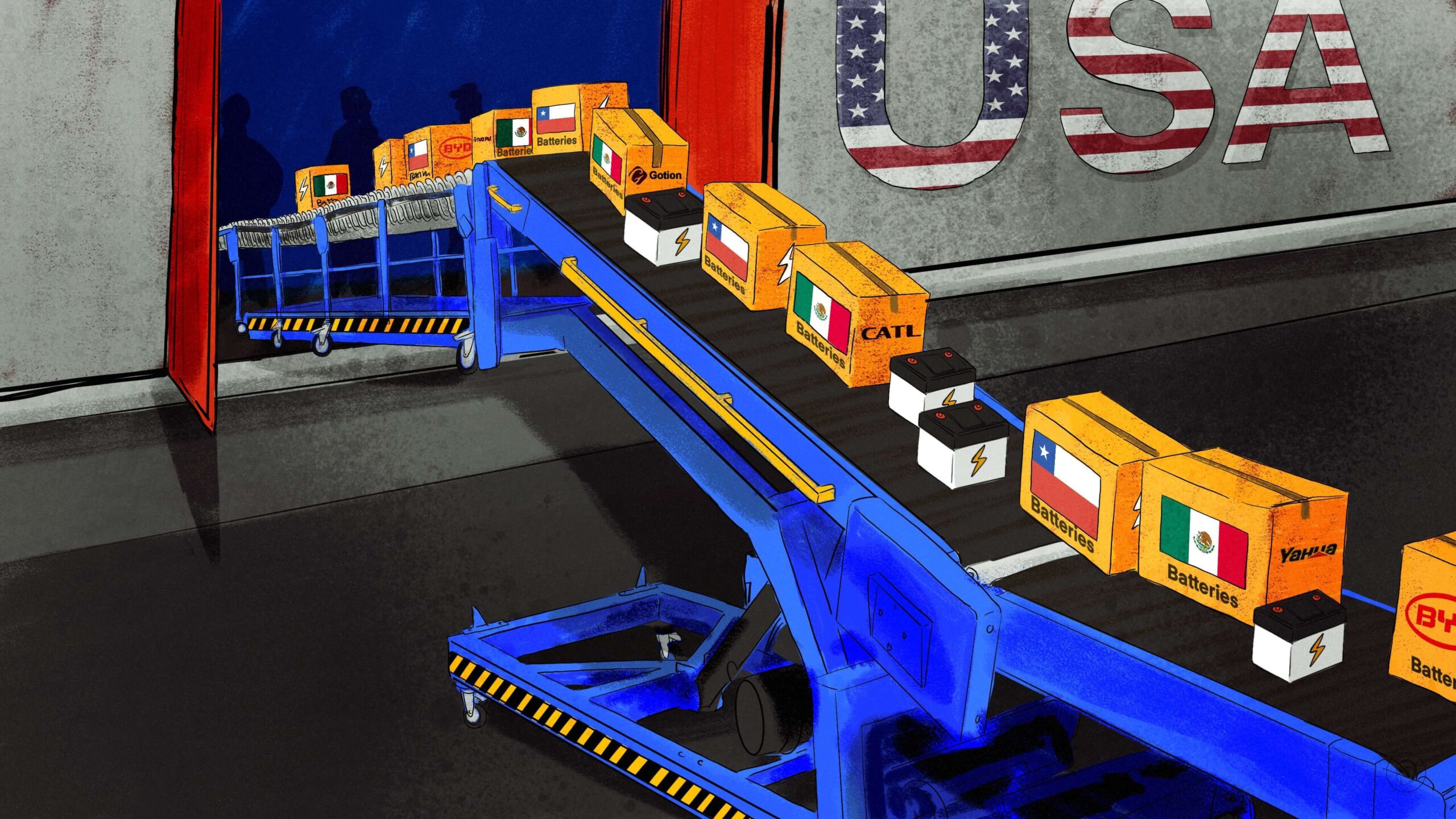Chinese batteries find backdoor to the U.S.
Chinese EV firms are investing in countries with Free Trade Agreements with Washington to gain access to America’s market and avoid growing opposition to Chinese direct investment on U.S. soil.

In May 2023, protestors waving American flags rallied outside Chinese company Gotion High-tech’s proposed site for a $2.4 billion electric vehicle (EV) battery plant near Big Rapids, Michigan. Signs read “Honk If You Love Your Freedom” and “No Commie Gotion.”
Against the backdrop of souring U.S.-China relations, Gotion faced intensifying backlash ever since its Michigan plant was first announced in October 2022. With that plant delayed, Gotion pivoted in June and said it was considering a $6.4 billion factory in Morocco — a country that has a free trade agreement (FTA) with the U.S.
Gotion would not be the only Chinese battery maker to set up operations in countries whose FTAs with the U.S. allow products access to the American market in an end-run around geopolitical risks.
In April, Chinese lithium processor Yahua entered into a joint venture to produce lithium hydroxide in Morocco, calling the location a strategic choice. Auto- and battery maker BYD is building a $290 million battery component plant in Chile, deepening its integration with upstream producers and gaining potential access to the American market through FTA partners.
The lithium-ion battery, a key piece of the global energy transition, relies heavily on China, which dominates 80% of its production worldwide. In the first quarter of 2023, 88% of U.S. battery imports came from China. This American reliance on China has raised concerns and led to legislation restricting Chinese imports and promoting domestic battery manufacturing.
China news, weekly.
Sign up for The China Project’s weekly newsletter, our free roundup of the most important China stories.
Buying from friends
In August 2022, the U.S. passed the biggest climate bill in history, the $370 billion Inflation Reduction Act (IRA), which offers substantial tax credits to incentivize investments in clean energy technology supply chains.
Under the IRA, U.S. consumers can receive up to $7,500 in tax credits if they purchase qualified plug-in EVs or fuel-cell electric vehicles (FCVs). To be eligible, the critical minerals in a battery must be extracted, processed, or recycled in the U.S. or a country that has a free trade agreement with the U.S., and the battery components must be manufactured or assembled in North America.
These two conditions led to a rush of foreign investment in battery factories in the U.S. Between them, South Korean battery manufacturers LG Energy Solution, SK On, and Samsung SDI invested over $100 billion in the U.S. to set up joint ventures to produce batteries that can say “Made in America.”
Of 22 EV models that qualify for the U.S. tax credits, 17 will receive supplies from South Korean producers. Seoul also offered $5.3 billion in financing to support South Korean companies’ battery investments in North America.
China’s work around
By contrast, Chinese companies are not being welcomed with open arms in the U.S. After Gotion’s October announcement met with opposition, Chinese battery giant CATL said in February it would collaborate with Ford to build an EV battery plant by licensing Chinese technology. Though Ford will retain 100% ownership of the project, the project has encountered intense scrutiny.
To avoid the stress of working directly in the U.S., Chinese firms are establishing production facilities in third countries that have FTAs with Washington. In addition to Morocco and Chile, Chinese battery companies have directed their investments to South Korea. In May, Huayou Cobalt signed contracts worth $2.2 billion with Posco Future M and LG Chem to build battery materials plants in South Korea, and battery recycling company GEM invested $920 million in a battery precursors plant there.
The fear of being cut off from American supply chains is not limited to Chinese manufacturers. U.S. EV giant Tesla reportedly asked Chinese battery suppliers to build factories in Mexico. Ningbo Tuopu and Sanhua Intelligent Controls, which both supply Tesla parts, are planning production bases in Mexico. In a similar vein, Ford has urged the U.S. to ease “foreign entity” rules so that more EVs get tax credits.






